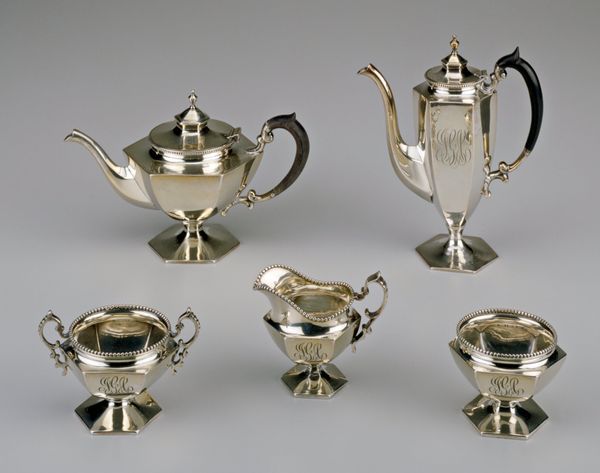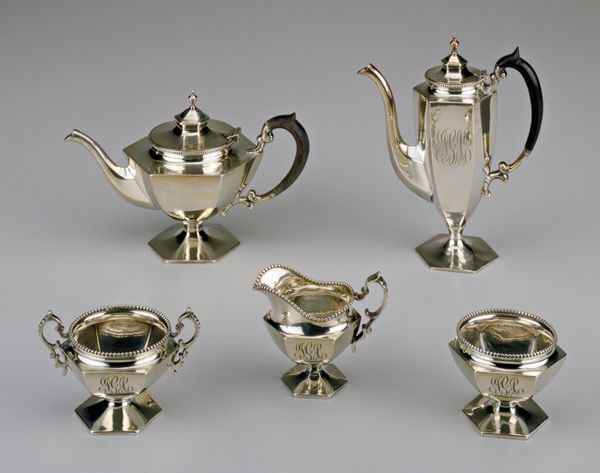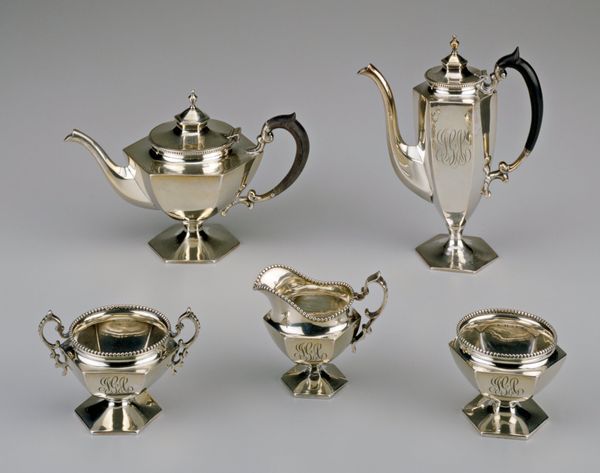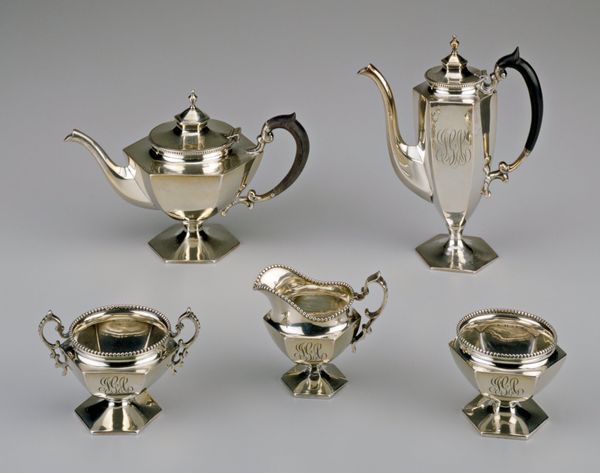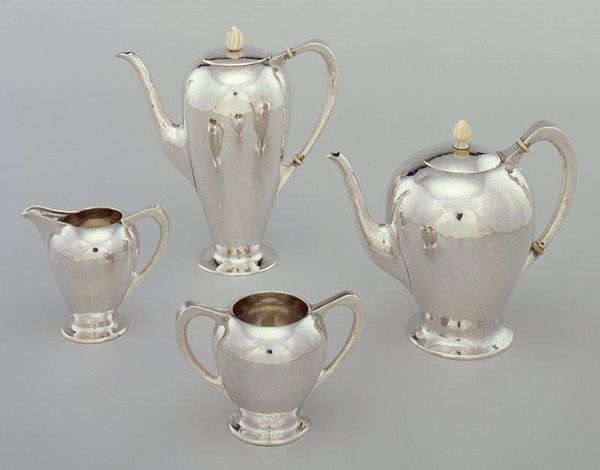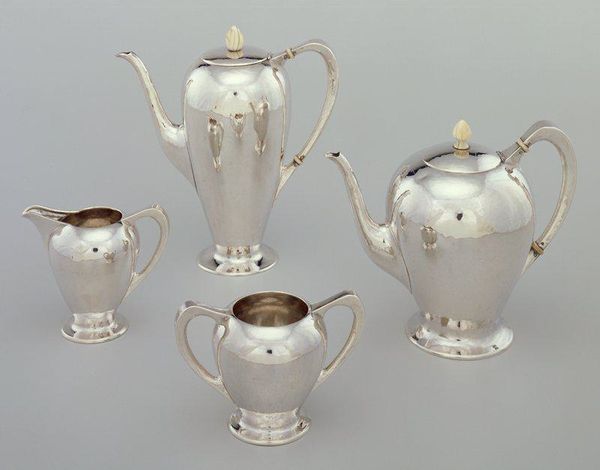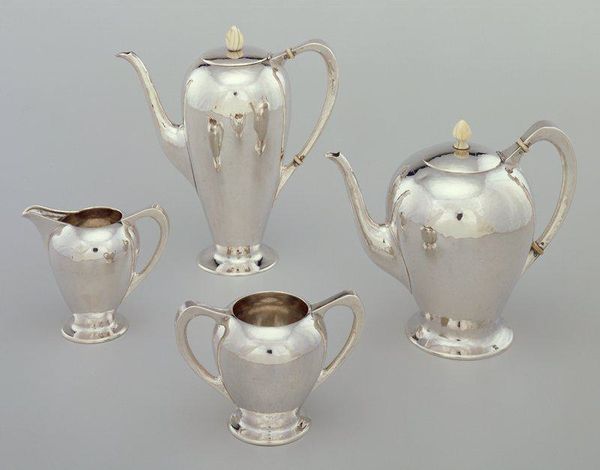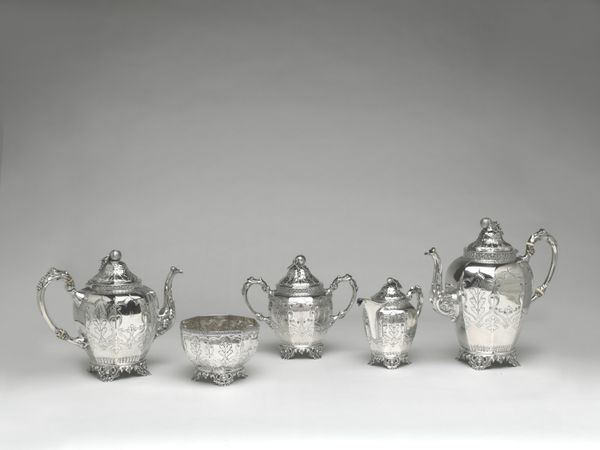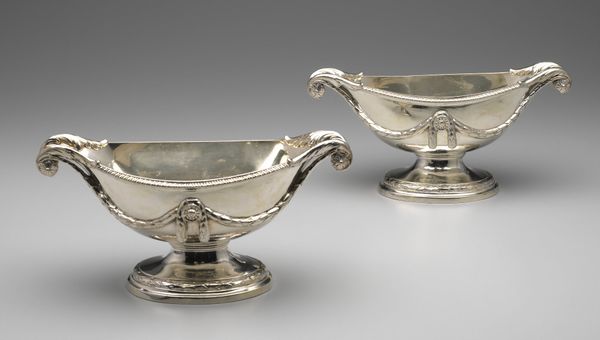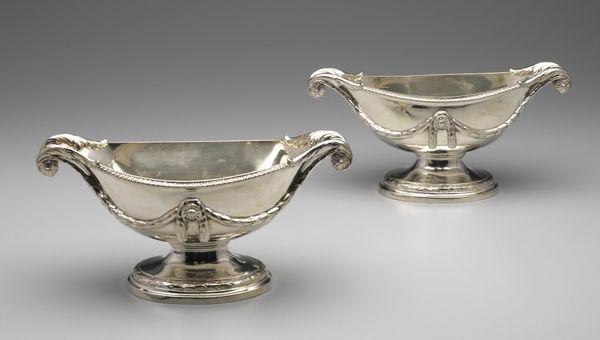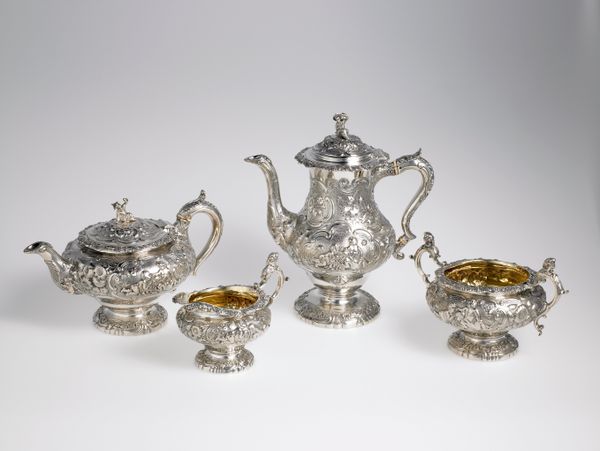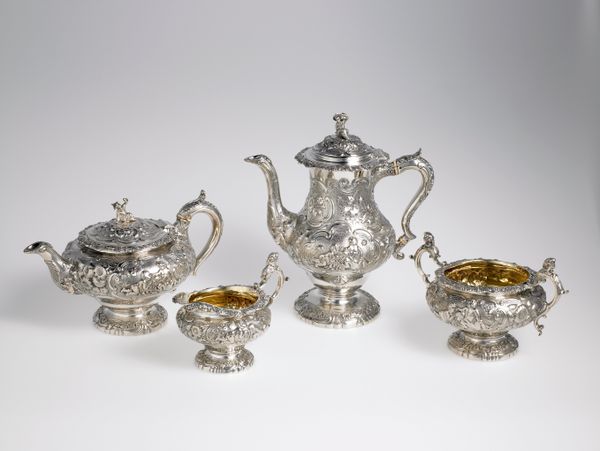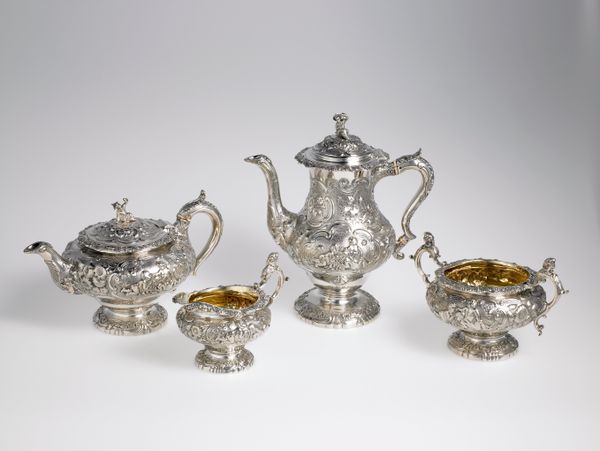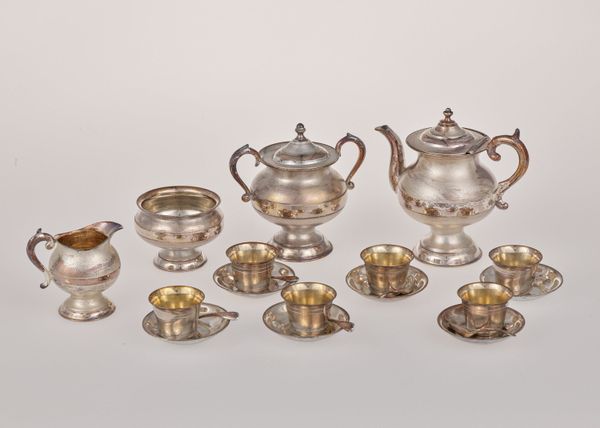
silver
#
silver
#
united-states
#
decorative-art
Dimensions: 5 7/8 x 4 13/16 x 1 7/8 in. (14.92 x 12.22 x 4.76 cm)
Copyright: Public Domain
Editor: This is a silver coffee pot, crafted by Bigelow, Kennard & Co. sometime between 1863 and 1912. The geometric forms, especially that hexagonal base, strike me as very modern for that time period. What do you see in this piece? Curator: Well, it immediately speaks to the rituals of domesticity, doesn’t it? Silverware, particularly a set like this, carried immense symbolic weight, signaling refinement and status within the burgeoning middle class of the late 19th century United States. Notice the monogram; it imprints ownership, a family's identity, right onto the object itself. How does that personalization strike you? Editor: I suppose it does seem pretty important if they're branding it with their name! And it's interesting how the shapes are repeated across each object in the set, from the coffee pots down to the smaller sugar and creamer bowls. Curator: Precisely! That repetition reinforces a sense of order, control. Silver, too, wasn't merely decorative; it was thought to have purifying qualities. Consider what sharing coffee meant then. What emotions arise for you when imagining such gatherings? Editor: Maybe it gave people a sense of togetherness and of elevated sophistication in their life. Even in just having this pot in your house, you felt a kind of richness that I imagine would bring people satisfaction and joy! Curator: Indeed! We project such emotional value onto these things, and over time they evolve from functional objects to powerful icons of a bygone era. Editor: So looking at this pot isn't just about seeing a vessel for coffee, but about recognizing the cultural ideals of the time? I guess that makes so much sense. Curator: Exactly. Material culture carries profound stories if we learn how to listen. Thanks for offering fresh insight!
Comments
No comments
Be the first to comment and join the conversation on the ultimate creative platform.
